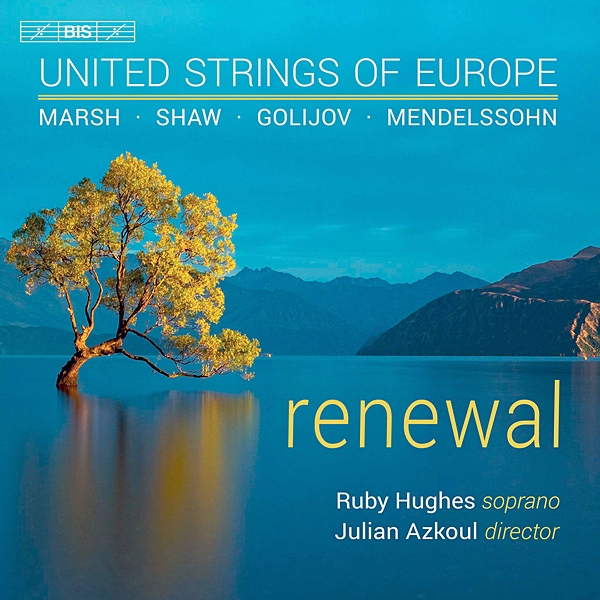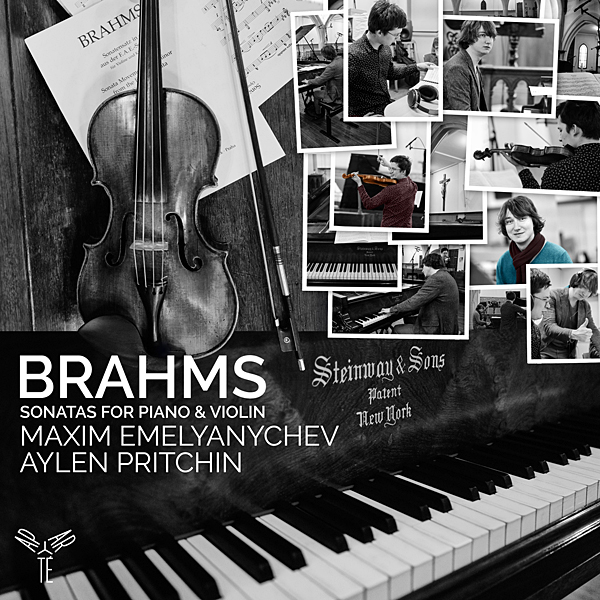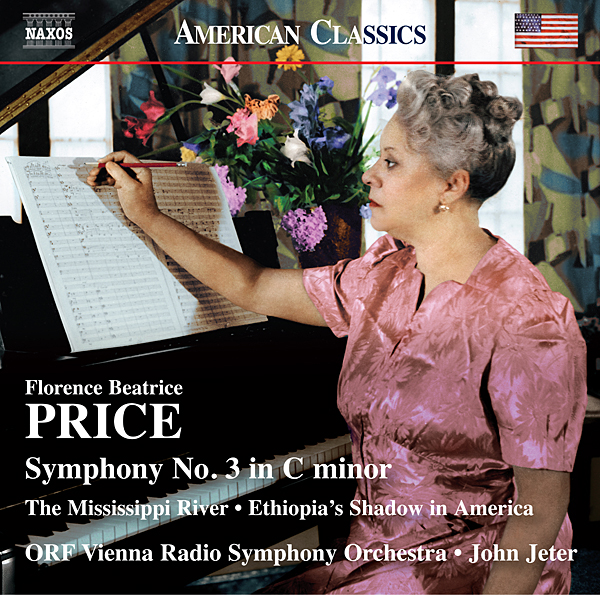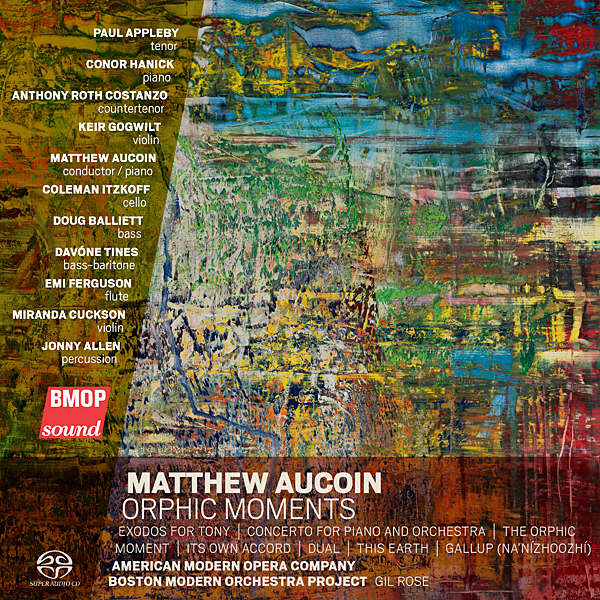| Columns Retired Columns & Blogs |
Loved the soundscapes on Renewal!Thank you for the treasure!

Here's a superbly executed oddity that somehow manages to enthrall: Atmospherically recorded arrangements for string orchestra of works written between 1847 (Mendelssohn's final String Quartet No.6 in F minor, Op.80) and 2019 (Joanna Marsh's In Winter's House). That a string program that includes two pieces initially composed for choral voices works so superbly is due to the care and expressivity of United Strings of Europe (USE), a UK-based ensemble of young artists dedicated to creating musical experiences that "promote cross-cultural understanding, ... celebrate diversity and bridge cultural divides."
As uplifting as USE's goals may sound, the suffering and isolation that have arisen from cultural divisions in the age of COVID-19 apparently contributed to a program that begins and ends with sadness. Marsh's work, which opens the album, seems bathed in the distilled grief and mourning for something lost. Osvaldo Golijov's "Three Songs"—one is in Yiddish, one in Gallego (the language of the Galician region of Spain), and the third, of Emily Dickinson settings, in English—were intended for and recorded by soprano Dawn Upshaw two decades ago.
Here, the heartfelt innocence of the marvelously pure-toned soprano Ruby Hughes gains extra emotional resonance by appearing immediately before music director Julian Azkoul's moving arrangement of the quartet Mendelssohn wrote in response to the death of Fanny, his beloved sister. Caroline Shaw's fascinating and deceptively simple "Entr'acte," whose impact seems to deepen on each replay, abounds in wistful passages; in one, the strings play impishly, emit repeated sighs, then die off. The 69-minute program ends with another beautiful and touching piece by Shaw, the short, dirge-like "and the swallow."—Jason Victor Serinus

Brahms: Violin-Piano Sonatas 1–3; F-A-E Sonata: Scherzo
Aylen Pritchin, violin; Maxim Emelyanychev, piano
Aparte AP 237 (CD). 2021. Franck Jaffrès, prod. and eng.
Performance *****
Sonics *****
The first thing we hear on this superb recording is Brahms's Scherzo from the collaborative F-A-E Sonata. It's the composer in full-on Beethoven mode, carried along by molten volatility, its Trio briefly relaxing the tempo and mood. The players attack it with incisive rigor. Pritchin's firm-bowed legato holds its focus in high fortes; Emelyanychev's bass triplets almost suggest a cello. It's thrilling.
It was smart to begin thus, as the piece sets off the three sonatas effectively. As the tempo indications—Allegro molto moderato, Allegro amabile, Andante tranquillo—suggest, these scores are dominated by Brahms's ruminative side. The subdued, searching opening of the G major Sonata particularly tells after the explosive final cadence of that Scherzo. In all three sonatas, the players find the restless, agitated undercurrent of the lyrical passages, save in the seemingly artless simplicity of the chorales. They also do justice to the agitated moments, with a nice drive throughout the D minor's Presto agitato (track 11).
The contrast of styles also redounds to the players' credit. Pritchin's tone maintains the same pinpoint intonation and exceptional purity at piano as it did at forte. Emelyanychev is supportive and assertive as needed, wistfully voicing the A major's second theme, adept in the rippling runs of the D minor's Un poco presto. The two bring shapely inflections to the waltz-like passages and really feel the expression inherent in the harmonic shifts.
First-class sound, natural, full, and not strident, caps the whole. The players are more "present" than they might be if heard in the auditorium—Pritchin's violin, especially, sounds nearer than that—but there's plenty of air. The piano's clear, resonant bass octaves avoid the boominess one sometimes hears. Bravo to all.—Stephen Francis Vasta

Florence Price: Symphony No.3; The Mississippi River; Ethiopia's Shadow in America
ORF Vienna Radio Symphony; John Jeter, cond.
Naxos 8.559897 (CD). 2021. Erich Hofmann, prod.; Christian Gorz, eng.
Performance *****
Sonics *****
Discographic attempts to revive interest in Florence Price around the year 2000 didn't get far. More recently, the composer has had her moment, with the Philadelphia Orchestra, no less, presenting her symphonies in live and virtual concert.
Price's music pays tribute to both her African ancestors and indigenous American traditions. In the compact, expressive First Symphony and the tone poem The Mississippi River, the themes emulate the contours of American folksong, like MacDowell, and like Dvorák in his "American" period. Lusher passages in the Symphony recall Arthur Farwell and other American Romantics. The tone poem adds spirituals to the mix, including, notably, a fervent "Deep River." Unexpectedly, Ethiopia's Shadow, a 12-minute tracing of Black history in America from slavery onward, eschews spirituals in favor of more suggestive illustration, now meditative, now tentatively confident. Everything is melodic, appealing, and richly colored, Price using the brass to support lyric passages and looking ahead to the postwar symphonists.
John Jeter supplies intelligent leadership, projecting the symphony's structures firmly. He can't quite solve Price's structural miscalculation in The Mississippi River—in track 7, the music "signals a windup," then continues rather a while—but he binds the diverse episodes into a logical flow. Ethiopia's Shadow may eschew spirituals, but at its start, Jeter projects a requisite heaviness.
The Austrian Radio Orchestra sounds gorgeous. The strings are firm and warm beyond what last year's pandemically straitened Philadelphians could muster; woodwinds are perky and plaintive; they're better at plaintive. Naxos's soundscape highlights the winds slightly but gives the full-throated brasses remarkable presence without stridency.—Stephen Francis Vasta

Matthew Aucoin: Orphic Moments
Boston Modern Orchestra Project, Gil Rose, cond. American Modern Opera Company
BMOP/Sound 1084 (Mixed formats). 2021. Gil Rose, Adam Abeshouse, prods.; Joel Gordon, Abeshouse, engs. Adam Abeshouse, prod. and eng.
Performance *****
Sonics ****
The time has come for composer Matthew Aucoin. In short order, his opera Eurydice hit the stages of the Los Angeles Opera and the Metropolitan Opera. His American Modern Opera Company (AMOC), cofounded with director/choreographer Zack Winokur, was appointed Music Director for the 2022 Ojai Music Festival. His book, The Impossible Art: Adventures in Opera, is making the rounds.
Now, the phenomenal Boston Modern Orchestra Project (BMOP), shepherded by Gil Rose, has released Orphic Moments which features definitive world premiere recordings of mostly earlier works—for the 31-year-old Aucoin, "earlier" means 2014–16—that, in Aucoin's words, are "experiments, eruptions, love songs, ... breaking of ground, first attempts to clear through the dense, thorny underbrush on paths I continue to explore today." Each piece was written for at least one member of AMOC, including pianist Conor Hanick, violinists Keir GoGwilt and Miranda Cuckson, and a few of the young American opera singers exploring new ground on today's stages.
Aucoin's music inhabits a world of dark, unpredictable mystery in which myth and reality duet for prominence. One can never be certain what will come next, save for beauty and adventure. It's an unquestionably dangerous and sensual world, especially in the two homoerotic songs in Gallup (Na'nízoozhí) (2021), recorded in 16/44.1, for which Aucoin conducts an ensemble that includes countertenor Anthony Roth Costanzo and falsetto-singing bass-baritone Davóne Tines. And it's consistently exciting, especially in the three-movement Concerto for Piano and Orchestra, in 24/44.1, complete with thrilling percussion. A must!—Jason Victor Serinus